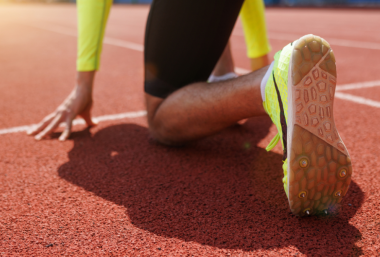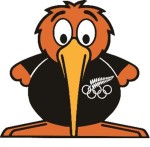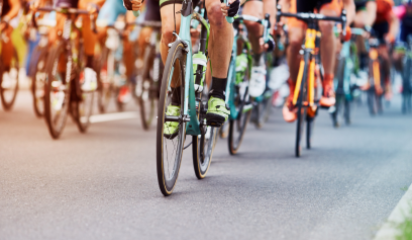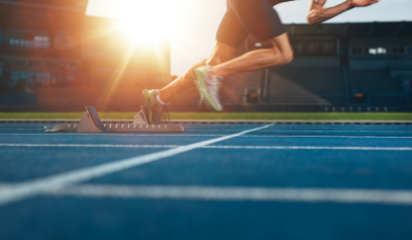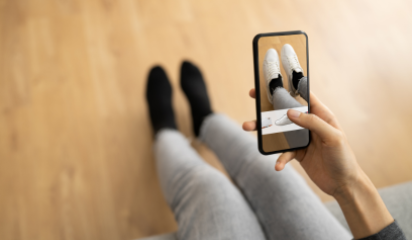In just a few days, the Olympic torch will arrive at the Opening Ceremony in Paris, officially commencing the 2024 Summer Olympic Games. Arguably the most famous sporting event in the world, the Olympics unites people from dozens of territories globally as they tune in to watch international athletes compete at the highest level.
With the excitement contagious, global audiences are expected in their billions.[1] It is therefore unsurprising that traders also get caught up in the hype as they seek to connect with consumers. From window displays and shop signage to social media posts, businesses are likely readying their show of support for the Games and their athletes.
However, during every Olympic Games (and other major events periods), our experts receive urgent enquiries from businesses who have been accused of serious fouls or unsportsmanlike conduct relating to the use of prohibited signs. Below, we discuss how you can avoid running the risk of such allegations and Olympic-sized penalties as we head into the heavily policed Olympic Games period.
What is Olympic IP?
The Olympic rings symbol is arguably one of the most iconic and globally recognisable signs in the world: visually striking with five interlaced rings of equal dimensions, coloured all in black or in blue, yellow, black, green and red:[2]

In addition to the Olympic rings symbol, the Olympic Charter references various other Olympic Properties,[3] such as Olympic words (“Olympics”, “Olympiad”, “Olympian”), motto (“Faster, Higher, Stronger – Together”), anthem, as well as various emblems, flags, mascots, and torches – which, for Paris 2024, include:
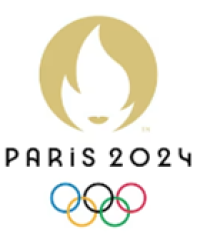 |
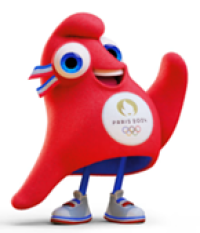 |
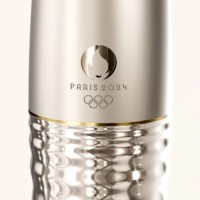 |
How is Olympic IP protected?
At the international level, the Olympic rings symbol is recognised by the 1981 Nairobi Treaty on the Protection of the Olympic Symbol.[4] This bespoke treaty obliges its 56 contracting signatories to ”prohibit by appropriate measures” the unauthorised use of the Olympic symbol for commercial purposes.
Further Olympic protections are then written into national laws. In New Zealand and Australia, this includes legislation for specific permanent protections relating to Olympic signs.
In addition to this, Olympic IP may also be protected in the usual way, including by trade marks (registered and unregistered), designs, and copyright. Examples of registered trade marks include ‘Goldie’ the New Zealand mascot, and ‘BK’ the Australian mascot:
|
|
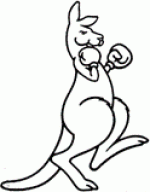 |
Who enforces Olympic IP, and why?
The International Olympic Committee (IOC) is the non-profit organisation responsible for organising the Olympic Games and protecting the Olympic Properties. The IOC and its local Committees also hold various national IP rights associated with the Olympics, such as registered trade mark rights.[5] Rather unsurprisingly, they do enforce their IP rights.
Maintaining the integrity of Olympic Properties is vital to the longevity of the Olympic Games. As a non-profit, IOC generates revenue through the licensing of its IP rights, and that revenue is then redistributed across the Olympic Movement, including the International Sports Federations and the National Olympic Committees responsible for assisting the athletes and bringing the Games to life. Without IP protections, financial support for the participating international sporting industry would be compromised. Essentially, without IP protections, the Olympics could not exist in its current form.
Companies who are the official sponsors of the Olympics have paid significant sums for the privilege of being associated with the Games. The IOC offers a four-year cycle to brands to sponsor the Olympics, and although the exact value of the deals are not often disclosed, some sponsors pay more than $300 million per cycle.[6] With stakes this high, it is understandable that sponsors expect exclusivity, and the IOC and its local committees have stringent IP enforcement measures in place.
It may be tempting to think that as a ‘local’ or ‘small’ business, no one will even notice your show of Olympic support. However, we know from past Games that enforcement officers will be watching, including online.
From butchers hanging rings of sausages, to bakers with linked bagels, bars with coloured coasters, cafes selling ‘flaming torch’ baguettes, florists with five-coloured arrangements, telecommunications providers advertising “ring ring ring ring ring” (in the style of the Olympic rings), and even creative ‘Olympics’ portmanteaus, various traders have been challenged on their advertising in connection with the Games.
Were the rules always this strict?
The term “ambush marketing” was coined in the 1980s and popularised in the late 1990s. The first clear example of ambush marketing occurred when Kodak failed to secure sponsorship of the 1984 Olympic Games (which went to its competitor, Fuji) and so Kodak instead became a named sponsor of ABC’s television broadcast coverage. The term “ambush marketing” is then credited to American Express marketing strategist Jerry Welsh, who lost out on sponsorship rights to Visa and in retaliation engaged in two particularly aggressive advertising campaigns for the 1988 Olympics – including a “welcome to Seoul” campaign and an “Olympic Heritage Committee” medallion campaign, both of which were undoubtedly misleading to consumers, aggravating to the official sponsor, and therefore attracted the wrath of the IOC.
Track forward to the 1996 Atlanta Olympic Games, when American sprinter, Michael Johnson, wore a pair of gold Nike shoes. He was later pictured on the cover of Time magazine wearing those shoes around his neck following his victory. The title of the article: “Golden Feat: Michael Johnson – gilded shoes and all – delights the nation by dashing to Olympic history”. A reasonable person may have assumed Nike the official sponsor of those Games. However, it was not. This was the final straw for the IOC: Nike during the same Games had engaged in other controversial advertising, such as by mocking the Olympic motto with the use of “Faster, Higher, Stronger, Badder”, setting up Nike pop-ups around the Olympic Village, and handing out Nike flags for use at Olympic events.
With official Olympic sponsors feeling frustrated, the IOC tightened its leash on the unauthorised use of Olympic Properties. This led to more stringent enforcement in the years to follow.
What is the situation in New Zealand and Australia?
Like many countries around the world, New Zealand and Australia have legislation that provides special protections for major events hosted by our countries, as well as permanent protections for Olympic signs irrespective of where the Games are hosted.
In particular, Olympic signs are protected in New Zealand under the Major Events Management Act 2007 (MEMA), and in Australia under the Olympic Insignia Protection Act 1987 (Cth) (OIPA).
MEMA
Sections 28 to 34 of MEMA provide permanent restrictions on the use of Olympic emblems and words such as the Olympic rings symbol and the term ‘Olympic Games’.[7] There are also restrictions on certain word combinations, meaning that the unauthorised use of terms like ‘Paris Games’ and ‘Paris 2024’ are strictly prohibited.
In particular, it is an offence to, in a business, trade, or occupation, use any of the following emblems or words, or another that so closely resembles any of the following emblems or words as to be likely to deceive or confuse:[8]
Emblems:
- The five ring Olympic symbol
- New Zealand Olympic Committee Olympic Logo with five ring symbol and fern leaf
- New Zealand team Olympic logo with five ring symbol and fern leaf
- Goldie, the official New Zealand Olympic mascot
- The Olympic flame symbol.
Words:
- Five Ring Olympic symbol
- Five Ring Olympic symbol with a Fern Leaf
- International Olympic Committee
- National Olympic Committee
- New Zealand Olympic Committee Incorporated
- New Zealand Olympic Team
- Olympic Games
- Olympic Gold
- Youth Olympic Games.
Combinations of words:
- Games, Olympiad, Olympian, Olympic, or Olympics – together with
- Paris, 2024, or XXXIII.
As will be obvious from the above wording, the prohibitions are broad. They are not limited to certain time periods, places, goods, or services. The potential consequences are also significant, potentially resulting in injunctive relief and fines of up to $150,000.
OIPA
The OIPA is the relevant legislation regulating the commercial use of the Olympic Properties in Australia.[9] It vests exclusive copyright and design rights in certain fundamental Olympic symbols in the Australian Olympic Committee (AOC) and protects certain expressions from being used commercially.
The following are OIPA “protected Olympics expressions” that specifically cannot be used for commercial purposes or in association with any goods or services without the express permission of the IOC or AOC:
- Olympic
- Olympics
- Olympic Games
- Olympiad
- Olympiads
It is also contrary to law for any unauthorised trader to use the following protected signs, or any another that so nearly resembles that sign that it would reasonably be taken for that sign:[10]
- The Olympic symbol
- The Olympic torch and flame artistic work
- The Olympic motto “citius, altius, fortius” and “faster, higher, stronger”
Again, these prohibitions are broad: such expressions and signs must not be applied to goods or services, or advertisements for good or services, and traders must avoid suggesting an affiliation between their business and the Olympic Games. Injunctions and damages or an account of profits are available as relief.
Registered trade marks
As noted earlier, the IOC and its local Committees also own various registered trade marks, which can be enforced in the usual way. Examples include Olympic team names, logos, mottos, and mascots.
So, what does this mean for you?
In short, avoid drawing a direct link between your business, goods or services, and the Olympic Games. During the Olympic period (26 July – 11 August Summer Olympics, and 28 August – 8 September Paralympics), the IOC is on high alert for any infringers and is prepared to act swiftly to protect its IP and strategic partners. The safest option for you Olympic-loving traders is to enjoy the Olympics Games as spectators.
If you really have to say something, consider celebrating your country, your love for sports in general, or your talent in sporting puns. You might even – carefully, and on specific legal advice – risk rewarding loyal consumers who share the same name as the City of Lights.
But always – always – avoid express reference to prohibited Olympic signs, and avoid creating a misleading association with the Olympic Games. Being mindful of the relevant legislation and thinking creatively about your advertising, rather than just free riding (or should we say ‘slipstreaming’) on known terms, will help you avoid running into the most obvious of problems.
Although we love to support an underdog, in this highly competitive race, the odds in the event of misuse are likely to favour the IOC’s gold-medallist IP protection and nine-figure sponsorship deals.
For further information or advice, please contact one of our experts.
